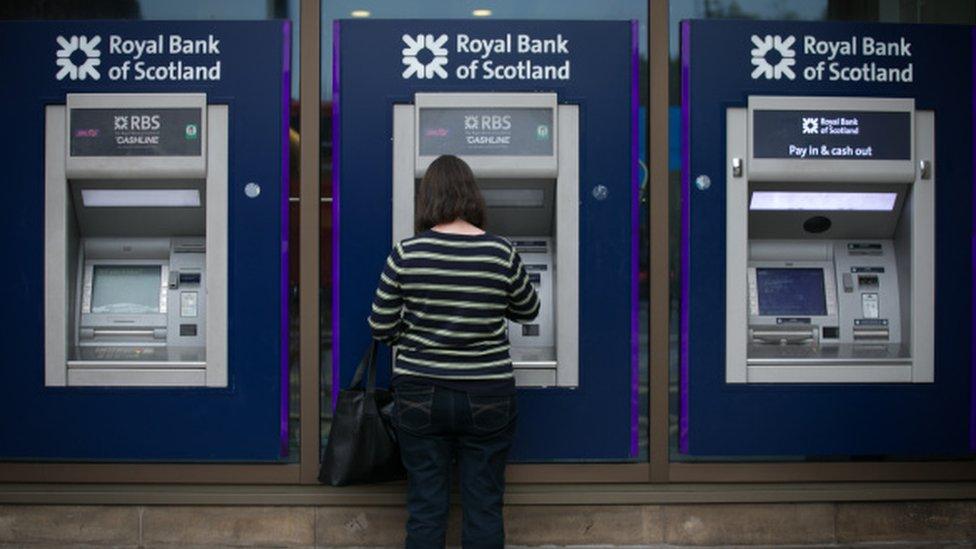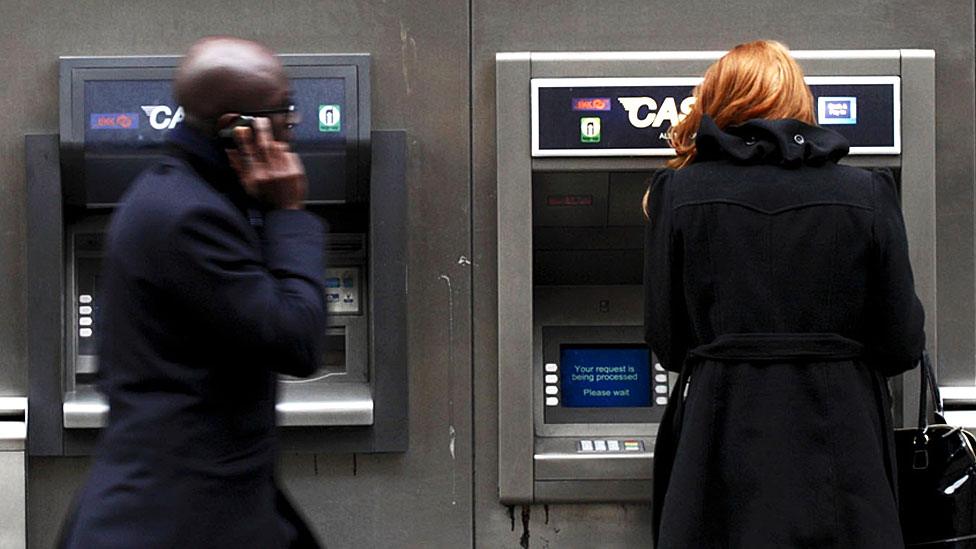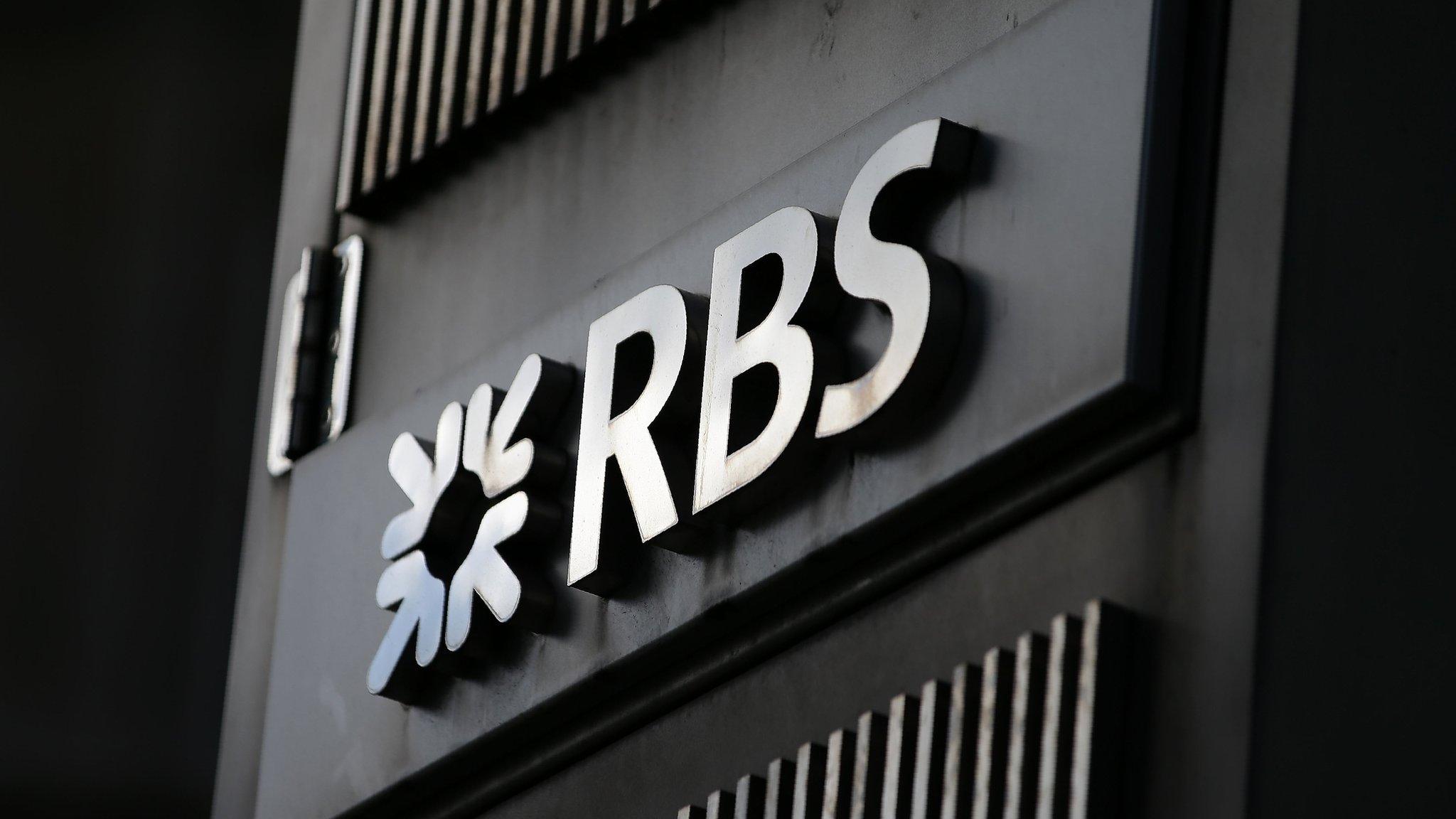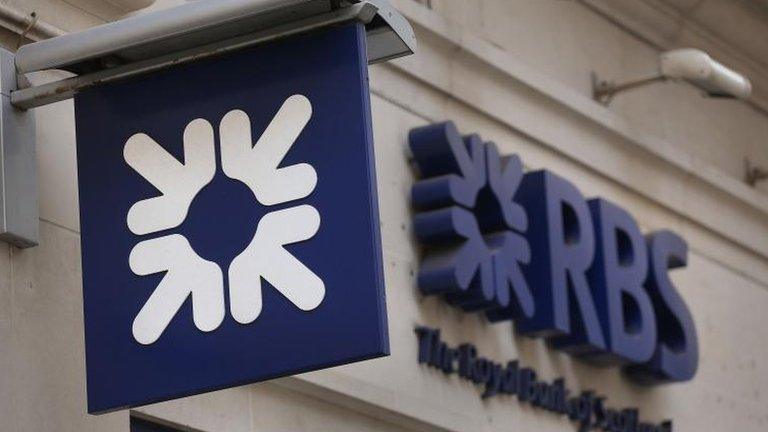RBS brings curtain down on 'toxic' bank
- Published

Royal Bank of Scotland has closed its so-called "bad bank", which was set up to handle toxic assets stemming from the 2008 financial crisis.
The move is another step on the bank's road to recovery
In last week's Budget, the government revived plans to sell down its 72% stake in the bank, aiming to sell £15bn of its shares by 2023.
Earlier this week, RBS passed the Bank of England stress test, having failed in 2016.
'Key moment'
RBS's Capital Resolution division, which in its various iterations was created to help keep RBS solvent, was set up after the bank was bailed out by the UK government.
The closure of the division draws a line under a massive restructuring at RBS, which has seen its balance sheet reduce from £2.2 trillion in 2008 to to £752bn today.
RBS chief executive Ross McEwan said the closure of the division was "a key moment".
"It has taken nearly 10 years to undo the consequences of the global ambitions pursued by RBS in the run up to the crisis," he said, adding that it was an "unprecedented" achievement.
"We have gone from a bank with a balance sheet bigger than UK GDP to the smaller, safer bank we are today," he added.
The division has gone from employing 19,000 staff in 2008 to 80 staff today.
Some of the remaining staff will stay with the bank, while a proportion will be made redundant.
Graveyard assets
In 2008, RBS had a massive pile of assets, £258bn of which were deemed to be "good", and £171bn which were toxic.
The range of assets RBS sold off was dizzying. It included a fleet of aircraft in Beijing, a major hospital in Sydney and a graveyard in the deep south of the US.
Mark Bailie, who led the division before becoming RBS' chief operating officer, said: "Today we are marking the end of Capital Resolution's journey.
"I would like to thank everyone who has worked so hard, first of all to save this bank, and then to rebuild its capital and reshape it in line with our strategy."
The bank is now more stable. On Tuesday, the Bank of England said all major UK banks could handle a "disorderly Brexit" after performing stress tests.
In the Budget last week, the government outlined plans to restart share sales by the end of the 2018-19 financial year.
It wants to sell off £3bn a year over five years - about two-thirds of its 72% stake.
One of the last remaining hurdles for RBS is a huge fine that is expected from the US Department of Justice relating to claims the bank mis-sold mortgage bonds in the run-up to the 2008 banking crisis.
The bank may need to solve this large issue before the government can start to sell its RBS shares.
- Published28 November 2017

- Published26 October 2017

- Published13 October 2017
